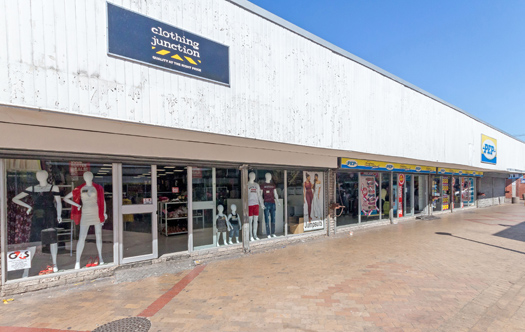How RMB’s Partnership Was Key To Clothing Junction’s Success

How RMB’s Partnership Was Key To Clothing Junction’s Success. Clothing Junction, part of the Gemelli group, began its journey as a fashion factory outlet in the mid-1990s and grew to its peak of around 40 stores in 2017. When Gemelli partnered with RMB Ventures in 2018, Clothing Junction underwent a significant transformation, moving away from the factory outlet model toward value fashion retail. From a small business in 2018, the brand has grown to over 230 stores across the country, employing close to 1600 people and highlighting the importance of the right partnerships, along with strategic thinking and investment when it comes to ensuring success.
One of the keys to success in retail is being able to adapt to changing market environments, as well as fluctuations in customer demand. The agility of being a small business, supported by the power of a larger group, gave Clothing Junction the impetus it needed to undergo a transformation from its origins to the business it has become today. “From the time RMB Ventures came on board, the entire concept of our business changed. We made a strategic decision that we no longer wanted to play in the factory outlet space. We wanted to become a value retailer with a focus on quality. We created a conscious shift and a complete rebranding, which successfully transitioned us and positioned us for the massive growth we have seen,” says Craig Stephenson, Deputy MD of Clothing Junction.
This repositioning stood the company in good stead as South Africa was rocked by numerous challenges in recent times. From Covid to extreme weather and significant unrest, the past five years have been difficult for many industries, but retail has arguably been one of the hardest hit. “At the time of the Covid lockdowns we had 120 stores, and we were forced to completely close our doors. Although for clothing retailers, as essential service providers, this shutdown was short, it still caused us significant difficulty. Despite this, we paid full salaries to all employees over the period, bolstered by the cashflow stability of our holding company, our strong balance sheet, and the support from RMB Ventures,” says Stephenson.
While weathering one storm, they were hit by another shortly afterward in the form of the looting and riots that rocked Kwa-Zulu Natal in 2021 – they lost 31 stores, representing almost a quarter of the business at the time. Maintaining their small business origins in their thinking and agility, they were able to react quickly, make decisions fast and within three months had reopened most of the stores. “We overcame this second blow by playing to our strengths, and this stood us in good stead when yet another disaster struck – the massive flooding in 2022. As much of our growth had happened in Kwa-Zulu Natal, we were heavily affected. Having come through similar challenges in the past, we knew what to do and once again rallied round to get back to business as usual in short order,” Stephenson adds.
Being a small company within a large group can be a double-edged sword. While there is power in agility and the ability to do things quickly, there is also potential to grow too fast and in a way that becomes unsustainable. Clothing Junction have struck a balance between the corporatisation of the business and small business thinking. Maintaining this element is not only their competitive advantage, but key to moving forward. Together with RMB Ventures they have undergone an extensive purpose journey to create exponential value for their customers and communities, and are now poised to grow bigger and faster in the future. Having laid strong foundations and processes during their growth period, they are now empowered with a successful, replicable formula that will enable them to accelerate growth.
“RMB Ventures has played a significant role in supporting this journey. Since they came on board they have impacted not only the way we do business, but also the way we think. They have been there to support us and act as a sounding board for ideas. They have a massive network of key people and resources. As members of the board they have helped us to identify opportunities, drivers and risk. They have also assisted in the transition of our brand and our business, bringing the corporate element to the equation while we maintain the small business agility we cannot afford to lose,” Stephenson concludes.




